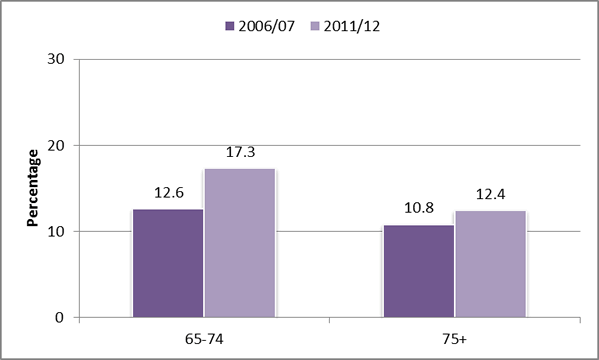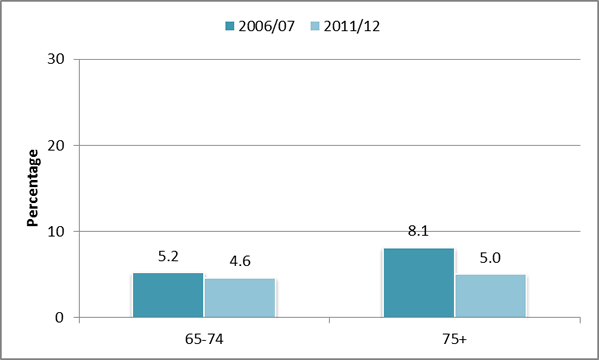Indicator 32: Mental health
| Indicator is fully reported? | Yes. |
| Type of indicator |  Outcome indicator Outcome indicator |
| Our findings |
Data is collected as part of the New Zealand Health Survey about two mental health indicators:
The second indicator better reflects the status of older people’s health at the time of the survey. Data is available by age, sex, and ethnicity, where sample size permits. (The sample size affects how the data can be analysed to produce reliable statistics.) Detailed data tables and analysis are available at www.health.govt.nz/publication/health-new-zealand-adults-2011-12. Figure 1 shows that the proportion of older people who had reported being diagnosed with a common mental health disorder increased for 65-74 year-olds from 2006/07 to 2011/12.[1] Figure 2 shows that the proportions of older people who reported psychological distress were similar in both of the survey years. Although the rate decreased for people aged 75+, the difference was not statistically significant. |
| How entities use the data | To monitor population health and make policy and/or other adjustments to health services as needed. |
| Entity responsible for this indicator | Ministry of Health. |
Figure 1: Proportion of older people with a diagnosed common mental disorder, 2006/07 and 2011/12

Source: Ministry of Health, www.health.govt.nz/publication/health-new-zealand-adults-2011-12. Only the value for the 65-74 age group shows a statistically significant difference from 2011/12 values (at the 95% confidence level).
Figure 2: Proportion of older people who experienced psychological distress in the past four weeks, 2006/07 and 2011/12

Source: Ministry of Health, www.health.govt.nz/publication/health-new-zealand-adults-2011-12. Differences between the surveys were not statistically significant (at the 95% confidence level).

